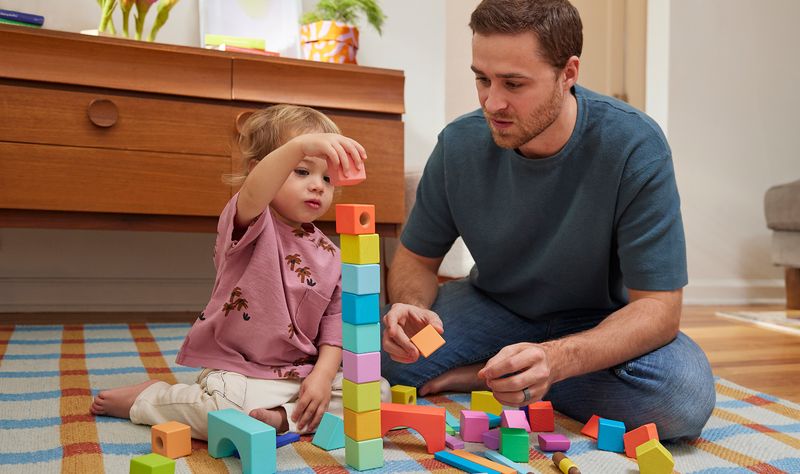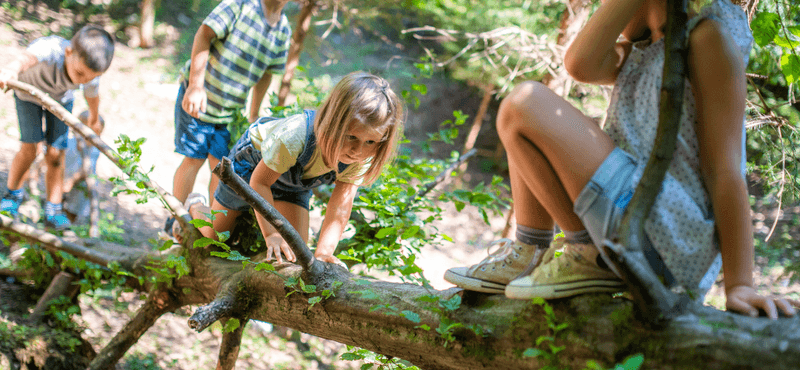Parenting, often a journey filled with love and challenges, sometimes leads to unexpected outcomes. While every parent aims for perfection, it’s fascinating to learn that certain mistakes can foster resilience in children. Instead of causing harm, these blunders equip kids with valuable life skills.
From letting them face failure to over-scheduling their days, these actions unintentionally promote adaptability. Embracing these mishaps, parents can transform potential pitfalls into stepping stones. Discover how these five common parenting errors can be surprisingly beneficial, helping children grow into strong, resilient individuals. By understanding and embracing these mistakes, we pave the way for a brighter, more resilient future for our children.
1. Letting Kids Fail

The sound of blocks tumbling can be distressing, but letting children face failure is crucial. Resisting the urge to intervene allows them to learn resilience. When a tower collapses, it’s not just about starting over. It’s about understanding what went wrong. In those moments of frustration, kids develop problem-solving skills. They learn patience and persistence. Watching their expressions change from disappointment to determination is heartwarming. This process builds their confidence, preparing them for future challenges. Failure isn’t defeat; it’s a lesson in disguise, offering growth and strength.
2. Over-scheduling Activities

In today’s fast-paced world, kids often rush from one activity to another. While it seems overwhelming, it teaches them time management and prioritization. Balancing soccer practice, music lessons, and studies requires organization. Through this hustle, children learn to plan and adapt. They discover their limits and how to manage stress. This hectic schedule, although challenging, instills a strong work ethic and resilience. Witnessing them thrive amidst chaos is inspiring. It’s not about doing everything perfectly, but about trying and learning from each experience.
3. Encouraging Risk-Taking

Climbing trees or riding bikes fast might seem dangerous, but it’s a playground for learning risks and boundaries. Encouragement from parents empowers kids to explore limits safely. This adventurous spirit fosters courage and decision-making. They learn to weigh risks and rewards, understanding consequences. Seeing them confidently reach new heights is thrilling. It’s not recklessness; it’s about understanding one’s capabilities. Risks, when navigated wisely, become lessons in bravery and resilience.
4. Allowing Disagreements

Arguments over curfews or chores can be tense, yet they’re vital for teaching communication skills. Allowing disagreements helps kids articulate opinions and understand others’ views. In these exchanges, they learn emotional regulation and empathy. Watching a calm discussion unfold is enlightening. It’s not about winning, but about respecting differences and finding common ground. Through disagreements, children develop resilience in relationships, understanding compromise and negotiation. These are skills for life.
5. Setting High Expectations

Expectations can seem daunting, yet they motivate children to strive for excellence. High standards, when paired with support, push kids to explore their potential. This journey towards achievement involves effort and learning from setbacks. Parents’ belief in their capabilities instills confidence. Observing them reach goals, big or small, is fulfilling. It’s about the belief that effort leads to growth. Challenges become opportunities, fostering resilience and determination. High expectations aren’t pressures; they’re invitations to grow.

Well, hello there!
My name is Jennifer. Besides being an orthodontist, I am a mother to 3 playful boys. In this motherhood journey, I can say I will never know everything. That’s why I always strive to read a lot, and that’s why I started writing about all the smithereens I came across so that you can have everything in one place! Enjoy and stay positive; you’ve got this!

